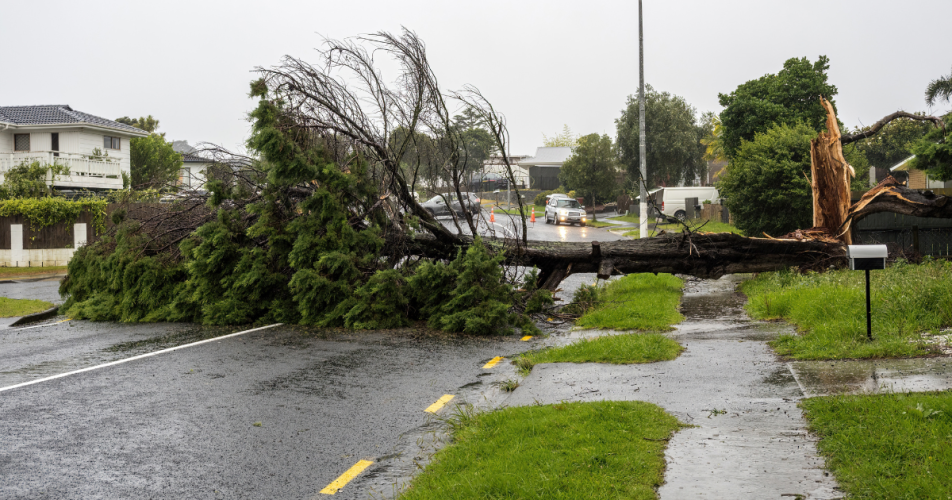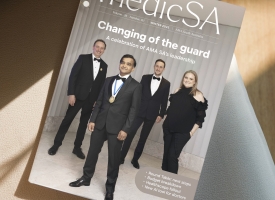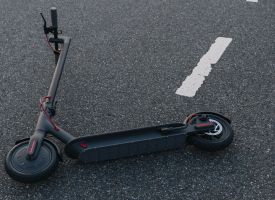Navigating healthcare necessities, planned surgeries during Cyclone Alfred
During extreme weather events, elective surgery will be dependent on location. The best option is to give your hospital a call for their local advice, AMA Queensland President Dr Nick Yim told ABC Radio. "If you can't get through to that hospital, give your local surgeon a call as well to see what the reception says, if they've got a backup plan."

Transcript: AMA Queensland President, Dr Nick Yim, 4BC Radio, Breakfast with Peter Fegan, Wednesday 5 March 2025
Subject: Cyclone preparation for hospitals, patients
PETER FEGAN: We have schools on the verge of closure, businesses are preparing to shut up shop, and the majority of us have been told to work from home. But what about those that can't stop, like at our hospitals? What about those who can't wait, like those people that need surgery? Will hospitals stay open? Well, I don't have the answers, so I thought I would touch base with the Australian Medical Association Queensland President Dr Nick Yim. He joins me on the line. Doctor, always great to have your company.
DR NICK YIM: Good morning, Peter.
PETER FEGAN: Will hospitals be running as normal?
DR NICK YIM: That's a really good question. We know the cyclone tracks over a big warning area from near the Fraser Coast all the way down to the Gold Coast and beyond. So, each region will have a different strategy in place. Obviously, we need to ensure that both patients and staff are safe. As you can imagine, with wind and rain there could be flooding involved. So, roads might be affected and transport to the hospitals might be affected, but all hospitals for emergencies will always remain open.
PETER FEGAN: So, the EDs are running as normal?
DR NICK YIM: Absolutely.
PETER FEGAN: So EDs are running as normal. That's really good advice for everybody listening. Really good information – EDs are as normal. Now, what about power outage issues? You won't have any because you've got generators at your hospitals.
DR NICK YIM: There's always going to be generators. There's always going to be backup power supply. We do have medications that require refrigeration. But the message to your listeners – this is an opportunity to prepare their own personal resources. So for people who are on medications, make sure that you do have an adequate supply. At the same time, we do have power right now, so start freezing those blocks, especially as some medications require cooling. Have batteries available. Make sure you do have a plan available. Make sure you leave your contact number with your friends and family. Make sure to keep checking in with each other.
PETER FEGAN: I've got a call from Susie from Wellington Point. She says her dad is on oxygen 24/7, not sure what happens if the power goes out. What can she do?
DR NICK YIM: This is an opportunity to see what the backup plan is. In an ideal world we need to have a generator available. Sometimes there can be backup batteries and all those types of things. If that is 24 hours a day, this is an opportunity to touch base with the local council. What are their options available?
PETER FEGAN: If somebody like that requires oxygen 24/7, she's on her own, Susie says. Is it an idea now to try and go to a hospital, or you don't want people presenting if they don't need to be at a hospital?
DR NICK YIM: I think the best option if they are living alone, if they can, is to live with a relative, maybe at a more stable location.
PETER FEGAN: So, you're saying there is an option to go with somebody else, but if they don't have an option, should she just pop in?
DR NICK YIM: I don't think that's a good idea because by transporting in, that's going to add more pressure to the staffing mix there.
PETER FEGAN: Yeah okay.
DR NICK YIM: But give their GP a call and see what options they have available at your local area.
PETER FEGAN: So, Susie from Wellington Point, give your GP a call. That is the advice from the President of AMA Queensland, Dr Nick Yim. Just give your GP a call, don't present to a hospital, and have a backup plan with batteries included as well.
So, doc, what about staff? I mean, I'm assuming that nurses and doctors will probably just be spending the night at the hospital or spending this weekend there.
DR NICK YIM: I think the key thing is, we need to ensure staff safety. They have loved ones at home, so obviously we don't want them travelling backwards and forwards. If they are in affected regions and the roads are flooded, for example, the recommendation wouldn't be to travel. They'll be staying at home. This is a reason why there might be challenges with staffing, not just in the hospital sector. It will be across the whole area, including community health as well. It's something where it's going to be a bit volatile. It's one of those areas that they watch and see the situation.
PETER FEGAN: What about elective surgery? So, everyone listening to me at home, this is the advice on elective surgery. If you were due to go into surgery to get your knee done, your hip or anything on Friday – elective surgery, doctor.
DR NICK YIM: With elective surgery, like I said earlier, it's going to be dependent on where you are based. The best advice is to give that hospital a call for their local advice. Obviously, many people will go to have elective surgery, whether it be in the private sector, public sector. So give that hospital a call to see what the advice is. If you can't get through to that hospital, give your local surgeon a call as well to see what the reception says, if they've got a backup plan.
PETER FEGAN: I think your final message will be that EDs are running as normal, Triple Zero is running as normal. Do both, call Triple Zero, they'll drop you in.
DR NICK YIM: Absolutely. But at the same time, it's also to prepare, and don't put yourself in those high-risk situations. If it's windy, if the roads are flooded, we don't want people putting themselves at risk because that means they're going to put healthcare services at risk as well, and the police and fire services at risk.
PETER FEGAN: Good on you, doctor. You take it easy over the next few days and thank you and all those frontline hospital staff, doctors and everybody that do a fantastic job. We really do appreciate you.
DR NICK YIM: Perfect. Thanks a lot, Peter.
PETER FEGAN: That's the President of AMA Queensland, Dr Nick Yim. He makes a lot of sense, does a fantastic job. So do all of AMA Queensland and our frontline nurses, doctors, hospital staff. All of you do a fantastic job and we thank you for it. So, there you go, EDs will run as normal, check with your hospitals. Susie at Wellington Point, give your GP a call. I think the best advice is, if you do have that elective surgery, perhaps just make the phone call now and just speak to the doctor. That's the best advice.



